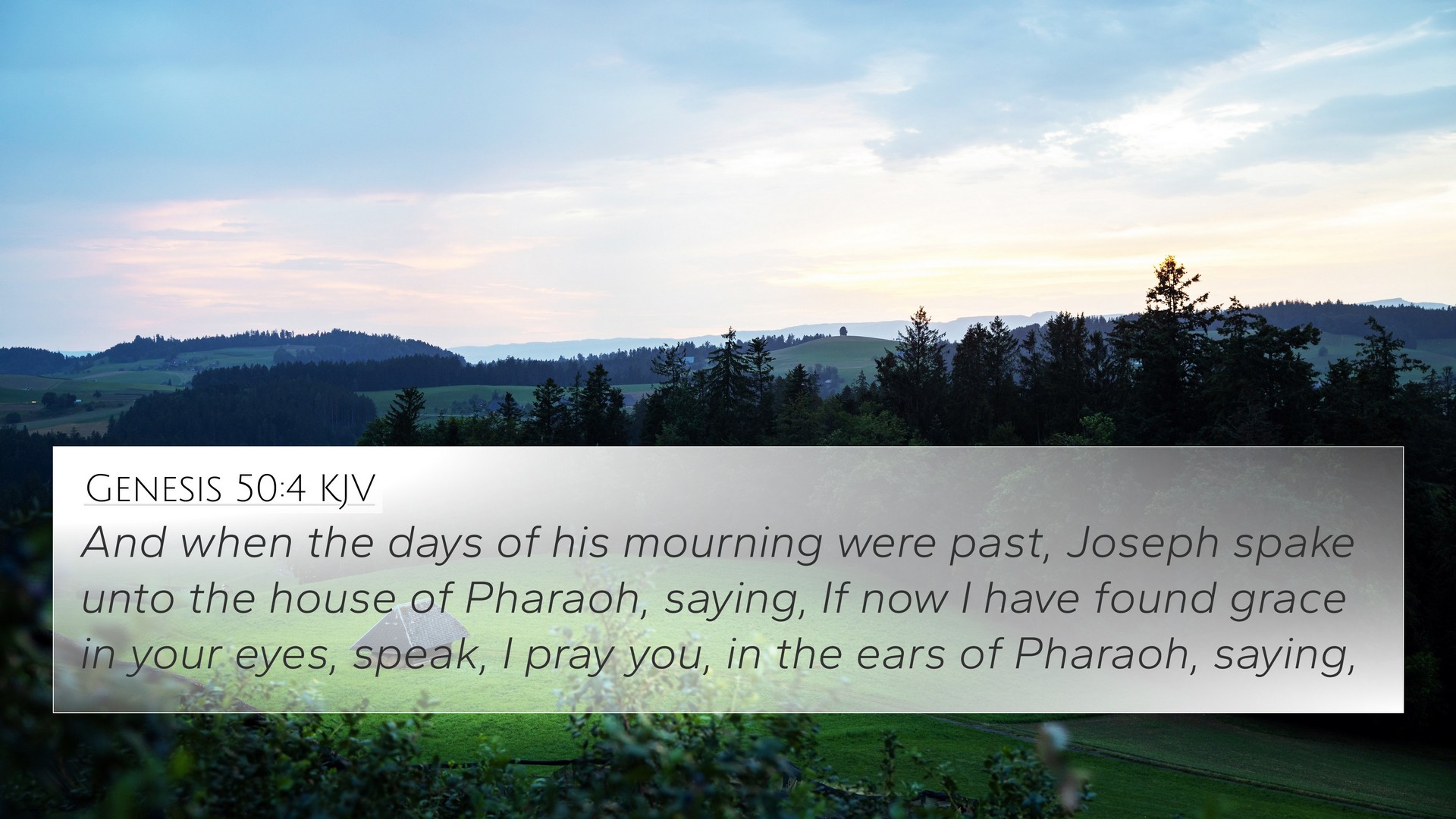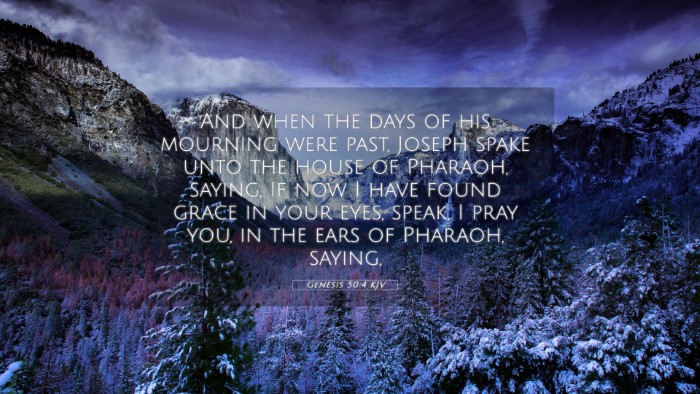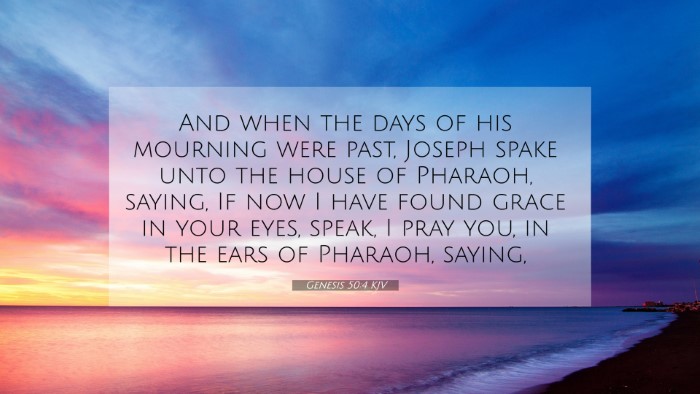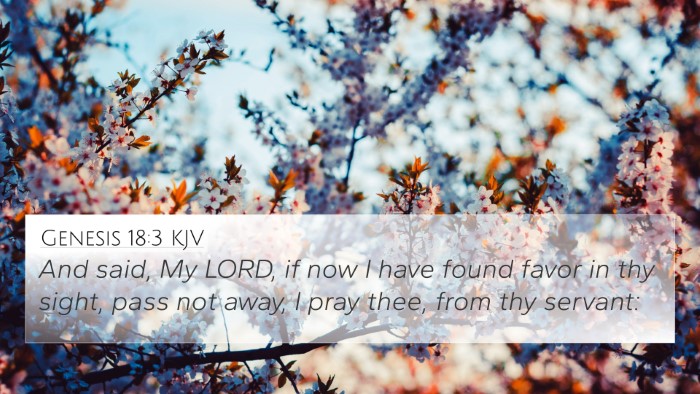Understanding Genesis 50:4
Genesis 50:4 reads: "And when the days of his mourning were past, Joseph spake unto the house of Pharaoh, saying, If now I have found grace in your eyes, speak, I pray you, in the ears of Pharaoh, saying,"
Context and Overview
This verse occurs at a crucial moment in the narrative of Joseph, after the death of his father Jacob (Israel). Joseph, known for his extraordinary journey from slavery to becoming the second most powerful man in Egypt, seeks to fulfill a promise he made to his father regarding burial.
Commentary Insights
The interpretations of this verse by public domain commentaries provide a rich understanding:
-
Matthew Henry:
Henry emphasizes the emotional weight of mourning in the ancient Near Eastern culture. He notes that Joseph's mourning period was significant not only for personal grief but also for cultural and familial obligations. Upon the completion of mourning, Joseph's transition from personal grief to a practical request shows a balance of emotional intelligence and social duty.
-
Albert Barnes:
Barnes highlights Joseph's position as a mediator. His request to Pharaoh indicates his understanding of the power dynamics in Egypt. After mourning, Joseph approaches Pharaoh with respect, indicating both his loyalty and his strategic thinking. It illustrates the importance of maintaining relationships, even in sorrow.
-
Adam Clarke:
Clarke explains the significance of grace and favor in this verse. Joseph acknowledges his position and the necessity of Pharaoh’s approval for his father's burial. Clarke sees this as a model for how believers should seek favor before authority figures in matters of importance.
Thematic Connections
This verse opens a path for thematic connections throughout the Bible. Below are some significant cross-references that relate to Genesis 50:4:
- Genesis 46:4 - God's promise to be with Jacob and his descendants in Egypt.
- Genesis 47:30 - Joseph’s request to bury Jacob in his homeland.
- Exodus 13:19 - Moses carrying Joseph's bones to the promised land.
- 2 Corinthians 1:3-4 - Comfort in mourning and the encouragement believers find in God.
- Psalms 30:5 - The temporary nature of mourning; joy comes in the morning.
- Hebrews 11:22 - Joseph's faith in God's promises regarding his bones.
- John 11:35 - Acknowledgment of grief through Christ’s sorrow at Lazarus’ death.
Connections Between Bible Verses
Genesis 50:4 exemplifies the rich inter-Biblical dialogues present in scripture. The relationship between Joseph’s request and God’s larger plan provides several layers of meaning:
- Mourning and Memory: The dual themes of mourning and remembrance are woven throughout scripture, pointing towards God's comfort in times of sorrow.
- Divine Favor: Joseph seeking grace underscores a broader biblical theme where individuals seek God's and man's favor in fulfilling divine promises.
- Historical Continuity: This verse shows the continuity of God’s covenant promises through family lineage, connecting Joseph’s story to the overarching narrative of Israel’s history.
Conclusion
Genesis 50:4 is not just a historical marker; it is layered with theological significance. Joseph’s respectful approach to Pharaoh following his mourning provides an excellent model for how believers can navigate relationships, even during difficult times. The thematic connections and cross-references found within and across scripts abound, offering a comprehensive insight into the interconnectedness of biblical texts. Understanding Genesis 50:4 can enhance one’s Bible study—considering tools for cross-referencing and analyzing how verses relate to each other.
Cross-Referencing Resources
When exploring the connections and cross-references related to Genesis 50:4, consider utilizing:
- Bible concordance for tracing themes.
- Cross-reference Bible study guides.
- Comprehensive Bible cross-reference materials available in various formats.




